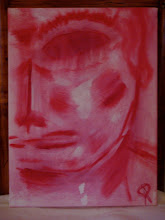
Splitting logs is payback, sending shockwaves through my body, transferring thin slabs of dense wood to reedy muscle. The two tall, red maples behind the garage were still alive; I made the decision to execute them because they were terminally ill and I chose not to invest the money necessary to make their last years comfortable.
They each must have been 75 years old—older than I am—and their thick trunks and wide canopies dominated their immediate landscape. These trees survived the insurance company with the son, now in his 70s, who threw wild parties as a teenager; the car mechanic with the daughter who loved horses; the cow rescued from the nearby swimming pool; the lady who died of cancer; the musical family with two young girls; and the couple who had legendary shouting matches; before us.
Now the lilacs can breathe, the hemlocks can branch out. No more dead or dying limbs, no more cables to keep them from splaying. For now, we will not replace them.
Their heavy remains will help warm our house or, more accurately, provide ambience, for the next several winters. The fireplace is inefficient for heating, but satisfying to watch, smell, and listen to, profound and primal as breaking ocean waves. A pile of dried logs licked by flames can be hypnotizing, calming, absorbing, regardless of season.
But now, the log lengths cover parts of the greening lawn, and they need to be split and stacked so they can dry enough to burn next fall. Sledge and maul come swinging down again and again with great force, though I am out of shape and have thin arms.
It is a familiar, fluid motion, like swinging a baseball bat, but vertically, and much heavier. Legs planted firmly, left arm extended, left hand gripping the wide base of the maul handle, I swing the maul up, slowly gaining speed. There is the briefest pause at the precise top of the upswing as my right hand grabs the handle above the left before exploding downward, powered by a sudden shift of weight through the fulcrum of the hips.
The result is either a dull, ringing thud, as less than an inch of the maul’s blade is buried in a thick log, or a satisfying crack, as two fireplace-size pieces fly in opposite directions. If the maul is wedged in the wood, I repeat the swing using the sledge, pounding the head of the maul like a pile driver until it cuts through.
I split a little more every day, until my shoulders tire. This is not a job that should be done when I am fatigued—I could take my leg off with a glancing blow. Such is the force that my energy must muster. Afterward, my upper body aches for hours, until a glass of white wine before dinner.
There are machines that can do this splitting, and the widest sections of the trunk may yet require one. But, like the Plains Indians that used every last shred of the buffalo they killed, I feel I must somehow acknowledge and take responsibility for the lives I took, utilizing all that I can from their corpses.
There’s the old adage about wood keeping you warm twice: once when you stack it, once when you burn it. While it doesn’t heat the house, the woodpile offers some security. If the power fails next winter, we could huddle around the fireplace and not freeze to death. Seeing three stacks of wood gaining height slowly from my effort feels akin to stocking the food pantry, a hedge against loss, unhurried and fragrant as rising bread dough.
The lily of the valley should recover. It has been covered for weeks with thick, fireplace-length logs. I rolled several logs away from the area, uncovering a number of pale, pink stalks tipped with yellow, trying to find the light. A few days later they had greened up, but I noticed a few more of the translucent spears poking up around the edges of the next log. I had to move half a dozen more logs to expose the full patch of lily of the valley.
I’m not sure what to do about the gnarled stumps. Striking them with the maul requires all my strength, just to crack a small wedge, and the effort makes my shoulders ring, vibrating my whole being, right down to my organs and bones. These trees will not go gently.
The largest log is about eighteen inches high and three feet in diameter. It will make a perfect table on the patio, but it weighs a ton and will have to be treated with some kind of preservative. I’ll need help to turn it on its side and roll it across the grass to its final resting place. It will be a lot more durable and attractive, though, than the chintzy, rusting table it will replace.
At my current pace, cleaning up the two trees will take until summer. I will be physically stronger from the work of splitting and stacking, with a deeper, visceral understanding of the land on which I live. The stumps and some sawdust will remain. It will be years before evidence of the trees will be gone, rotting into the ground, or turning to ash in my fireplace.



